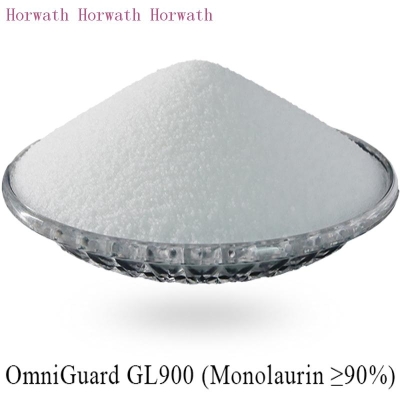A summary of international soybean products market
-
Last Update: 2002-01-11
-
Source: Internet
-
Author: User
Search more information of high quality chemicals, good prices and reliable suppliers, visit
www.echemi.com
Introduction: India: traders claim that China and the United States have increased their offer of soybean meal in the Asian market, which has put pressure on Indian soybean meal exporters In order to maintain the market share of Indian soybean meal in the Asian region, they have reduced the price of soybean meal India is reported to have lost market share in Asia, currently only 25% As Chinese oil meal exporters open new markets in Asia to sell excess soybean meal, Asian oil seed traders claim that India (the only other stable soybean meal source country in Asia) has found that annual sales in this market are not very smooth So far, in the market year ending in October 2002, India has signed about 1.4 million tons of soybean meal export contracts, of which about 800000 tons have been shipped India exported 2.2-2.3 million tons of soybean meal last year Singaporean traders claim that while large feed mills can afford tons of Panamanian goods to buy American soybean meal, relatively small soybean meal buyers find Chinese soybean meal a good alternative to Indian suppliers Both India and China can provide about 10000-12000 tons of soybean meal in small batches It is reported that Japan and Indonesia have switched to buy Chinese and American soybean meal They claim that Indian soybean meal prices have recently fallen to about $171 per ton FOB, compared with $180 per ton last week The price of soybean meal with high protein content in the United States is lower than 210 US dollars / ton C & F in Southeast Asia Although the price of Chinese soybean meal is about 176 US dollars per ton FOB, its relatively low freight to Vietnam and Japan makes Chinese soybean meal more competitive than India Many Indian refineries have already slashed the amount of vacuum extraction, because the global soybean meal price is falling, but the domestic soybean price in India remains relatively high Soybean traders hold their stocks and hope for better prices in the future According to the Indian soybean Press Association, it is estimated that this year's soybean production in India is 5.4 million tons, up from 5.01 million tons last year Indian soybean meal prices fell $10 / ton last month and are likely to rebound in the near future Indian soybean meal prices are expected to rebound to $175 / ton in the next few days According to traders, the contract shipping of soybean meal signed in the past will start in January, which will lead to higher prices Brazil: well-informed trade insiders in the industry claim that the planting of new soybeans in Brazil is basically over, and the planting area has increased to 15.6 million hectares The area includes changes in Brazil's soybean producing states such as Parana, Mato Grosso and goas It is reported that the yield of new soybean has a good prospect According to traders, if the climate continues to be good, soybean production will set a new record in 2000 However, based on the increased planting area and current climate conditions, soybean production is expected to be 42 million tons Similar to the increase of soybean export registration in 2002 / 03, Brazil's soybean export volume is expected to be 29.2 million tons in 2002, higher than 27 million tons in 2001 Thailand: Thai feed mills will buy soybean meal, although Bangkok has not yet set an import quota due to a drop in inventories Thailand's feed mills have purchased 70000 tons of American and Argentine soybean meal in the past few weeks It is necessary to purchase, because the demand for livestock feed during the festival makes the soybean meal inventory decrease, and the supply of processing plants has basically been exhausted Normally, Thailand has announced the quota for the import of feed raw materials, but it has not yet announced the quota for 2002 Last year, Bangkok set a quota of 1.2 million tons for the import of soybean products, but later allowed an additional 300000 tons to be imported due to insufficient production.
This article is an English version of an article which is originally in the Chinese language on echemi.com and is provided for information purposes only.
This website makes no representation or warranty of any kind, either expressed or implied, as to the accuracy, completeness ownership or reliability of
the article or any translations thereof. If you have any concerns or complaints relating to the article, please send an email, providing a detailed
description of the concern or complaint, to
service@echemi.com. A staff member will contact you within 5 working days. Once verified, infringing content
will be removed immediately.







